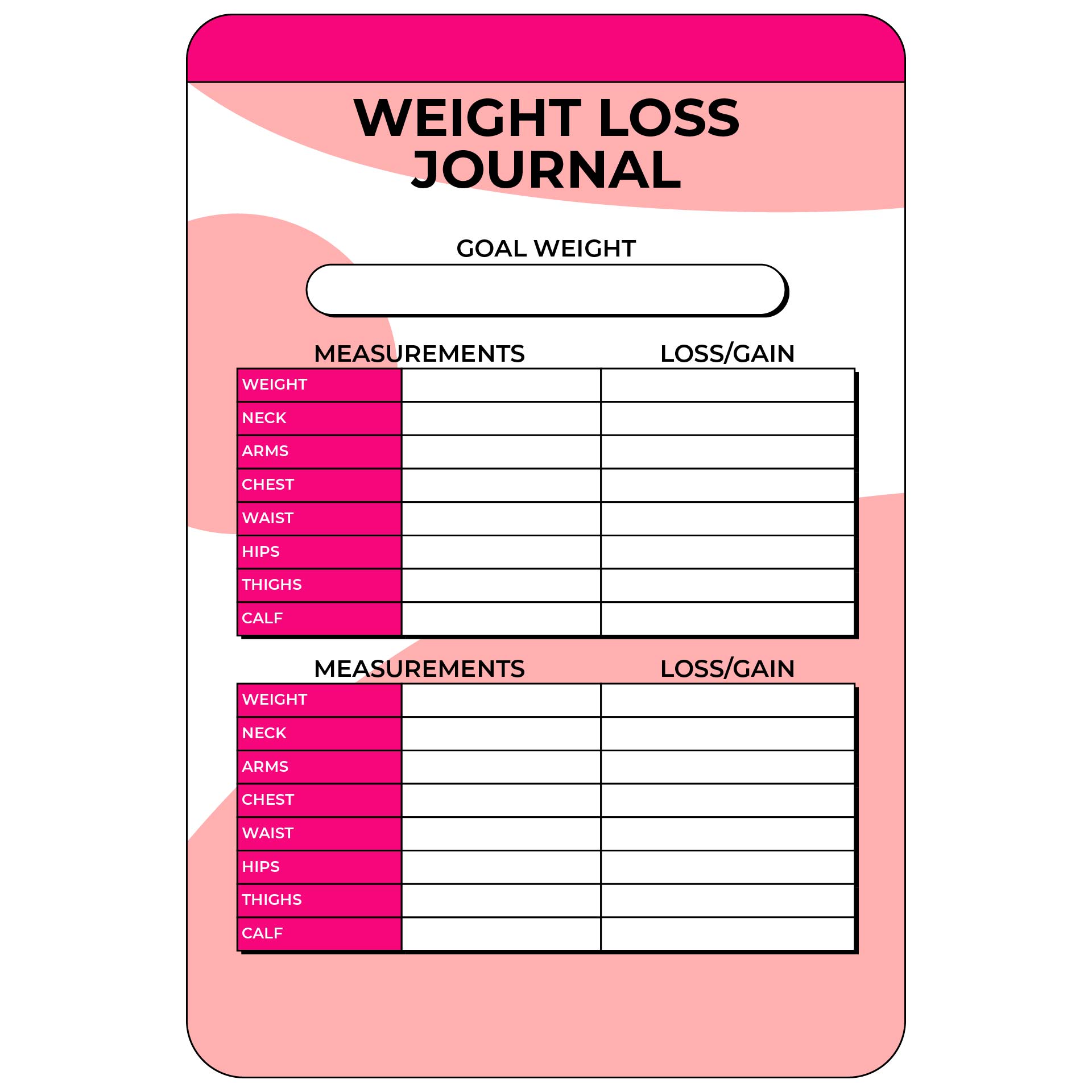Have you ever felt like you were on a weight loss journey but couldn’t quite pinpoint why you weren’t seeing the results you desired? Maybe you were diligently sticking to your diet, hitting the gym, but still felt discouraged. The missing piece? Understanding your own mind and body. This is where a weight loss journal comes in, acting as your personal coach, guiding you through the complexities of your journey.

Image: cashier.mijndomein.nl
By simply taking a few minutes each day to reflect, you can unlock insights into your cravings, habits, emotional triggers, and overall progress, empowering you to make sustainable changes. Let’s dive into a world of weight loss journal prompts designed to ignite your self-awareness and propel you towards your goals.
Unveiling Your Relationship with Food
1. What is your favorite food and what makes it so appealing?
This prompt delves into your emotional connection to food. Is it comfort, nostalgia, or a pure taste sensation? Understanding why you crave certain foods can help you navigate triggers and create healthier alternatives.
2. Identify your “food demons.” What are the foods you struggle to resist?
This is about being honest with yourself. There’s no judgement here. By acknowledging your food vices, you can strategize how to manage those cravings and develop healthy coping mechanisms.
3. Rate your hunger on a scale of 1-10 before each meal. How does your hunger level affect your food choices?
This prompt encourages you to pay attention to your physical hunger cues. Often we eat out of habit or boredom, rather than actual need. By recognizing genuine hunger, you can make more informed food decisions.
4. Describe your eating environment. What are the distractions present when you eat?
This question promotes mindful eating. Are you eating in front of a screen, rushing through meals, or distracted by conversations? Creating a calm and focused eating environment can enhance digestion and help you savor your food.
5. Reflect on your eating habits. Are you skipping meals, overeating, or having late-night snacks?
This exercise encourages introspection into your daily eating patterns. Identifying unhealthy habits can pave the way for positive changes.
Exploring Your Emotional Landscape
6. What are your typical emotional triggers that lead to overeating?
Stress, boredom, sadness, joy – these emotions can influence our choices. Identifying the triggers can help you develop healthy coping strategies to manage those feelings without turning to food.
7. Describe your body image. What do you like and dislike about your body?
This prompt encourages self-acceptance. It’s about recognizing your strengths and working on areas you’d like to improve, all while fostering a positive relationship with yourself.
8. How does your weight loss journey affect your self-esteem?
This question fosters self-reflection. Are you focusing too much on the scale? Remember, weight is just one aspect of your overall wellbeing.
9. What are your biggest fears or challenges related to weight loss?
Be honest with yourself. Fear of failure, social pressure, or lack of motivation are common. By acknowledging your fears, you can address them head-on and build resilience.
10. What are your biggest successes on your weight loss journey so far?
Celebrate your victories! Every small step forward is a reason to be proud. Recognizing your progress reinforces your determination and motivates you to keep going.
Unveiling Your Strengths and Setting Goals
11. What are your favorite activities, hobbies, and interests?
This prompt helps you connect your weight loss journey to your overall life. Find ways to incorporate movement and healthy eating into activities you genuinely enjoy.
12. How can you make your weight loss journey more enjoyable and less restrictive?
Focusing on sustainable lifestyle changes over drastic restrictions is crucial. Find ways to make healthy choices enjoyable and long-lasting.
13. What are your long-term goals related to weight loss and overall health?
Set realistic and achievable goals. It’s about creating a vision for your future self and working towards that vision one step at a time.
14. What are your non-scale victories?
Beyond the numbers on the scale, what progress have you made? Increased energy, improved sleep, better mood, or a new exercise routine are all important wins.
15. Reflect on your progress and celebrate small victories. What are you proud of?
Remember to acknowledge your achievements, big or small. This reinforces your commitment and motivates you to continue your journey.

Image: www.abundancenolimits.com
Expert Insights and Actionable Tips
The power of a weight loss journal lies in its ability to personalize your journey. As registered dietitian, Emily Carter, emphasizes, “A journal allows you to connect the dots between food choices, emotions, and behaviors.” This self-awareness empowers you to make lasting changes and develop a healthier relationship with your body.
Don’t be afraid to experiment with different prompts, delve deeper into your personal experiences, and create a journal that resonates with you. You might just find that the key to unlocking your transformation lies within your own thoughts and feelings.
Weight Loss Journal Prompts
Conclusion
A weight loss journal is your personal guidebook to understanding and navigating the complexities of your journey. It encourages introspection, promotes self-awareness, and empowers you to make informed choices. So, grab a pen, a notebook, and embrace the power of self-reflection. Your transformation begins with the journey inward. Remember to share your experiences and insights in the comment section below!






